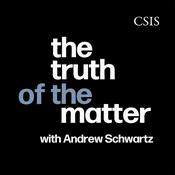“We’re in a whole tangled mess…we’ve gotten ourselves into a tangled mess around not just securing our infrastructure, but also around competition for the pieces of our infrastructure.” AI has become a cornerstone of modern defense, economic security, commerce, and more. But without effective cybersecurity strategies, the technology that has helped drive U.S. innovation and productivity could become our Achilles heel.
Kemba Walden, president of the Paladin Global Institute and former Acting National Cyber Director, and Devin Lynch, senior director of the Paladin Global Institute and former director in the Office of the National Cyber Director, join the podcast to discuss their new report, “The AI Tech Stack: A Primer for Tech and Cyber Policy,” and the importance of implementing effective security measures and infrastructure around its deployment.



